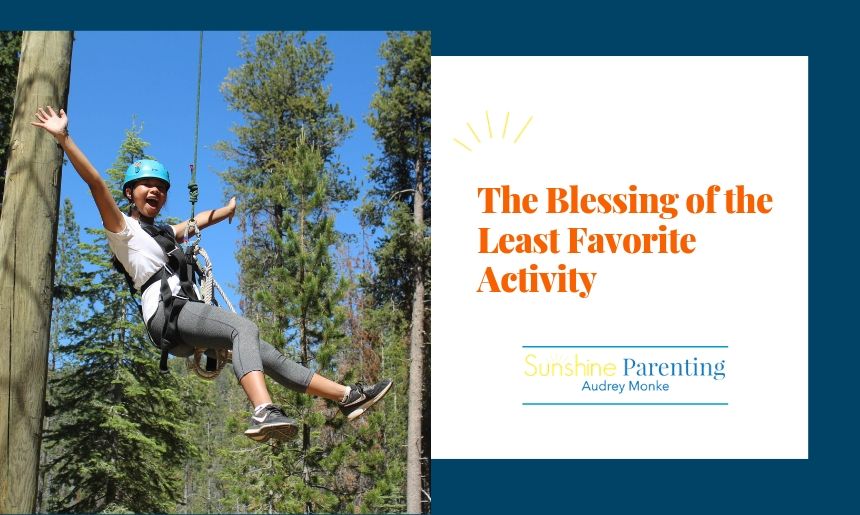
Wendy Mogel’s best selling book, The Blessing of a Skinned Knee, resonated with me.
I can relate much of her message to camp and to my own family. I heard Dr. Mogel speak at a camp conference several years ago, and she continues to be active in the camp community. Many of our camp parents have heard her speak at school parenting events or have read her book. If you haven’t had a chance to read The Blessing of a Skinned Knee, I highly recommend it. In addition to sharing about the importance of letting our kids take healthy risks, and not always rescuing them from failure, Mogel gives many other valuable insights. She has recognized the value of camp experiences in the development of emotionally healthy kids, as you can read in the article “Camp Blessings” on her website.
A question I often get asked, especially by kids who haven’t yet been to camp, is “What if I don’t want to do an activity?” Sometimes it starts with a statement, “I don’t like horses. Do I have to do that activity?”
My short answer is, “You won’t be forced to do any activities, but you will still go with your group, and you will be encouraged to try.”
I think there are three main reasons kids don’t want to do a particular activity, and they are the same reasons why adults often choose to forgo some recreational options:
Negative Experience in the Past
A previous negative experience with the activity, usually not at camp and not with experienced instructors. Falling off a horse, being dragged behind a ski boat and not getting up, or getting lost on a hike are all examples of negative experiences that make a person naturally inclined not to want to try again.
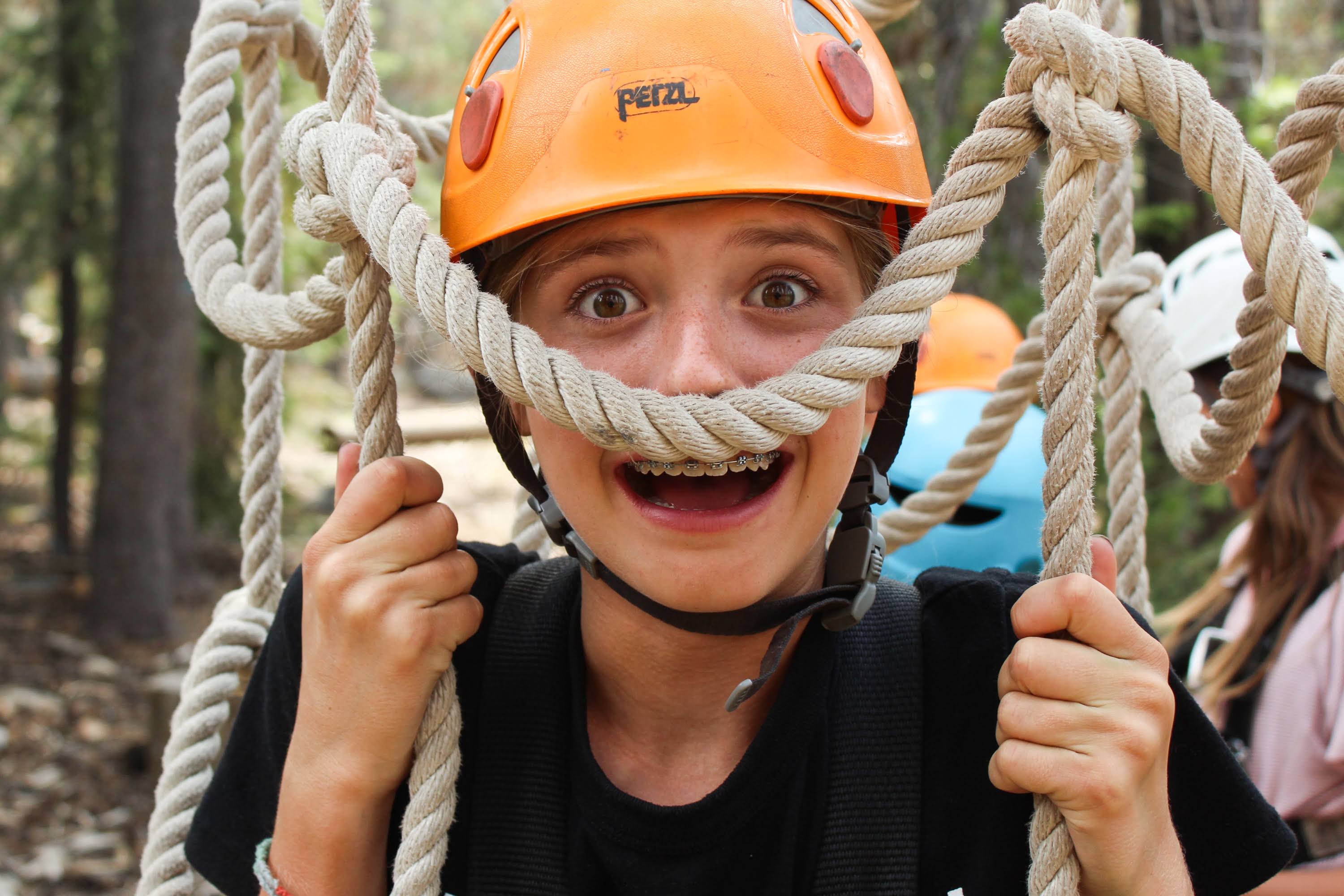
Fear
Fear of being humiliated. Fear of failure. Fear of heights. Fear of deep lake water. Fear of rocks. Fear of going to the bathroom in the woods. Fear of getting hurt. The list goes on and on.
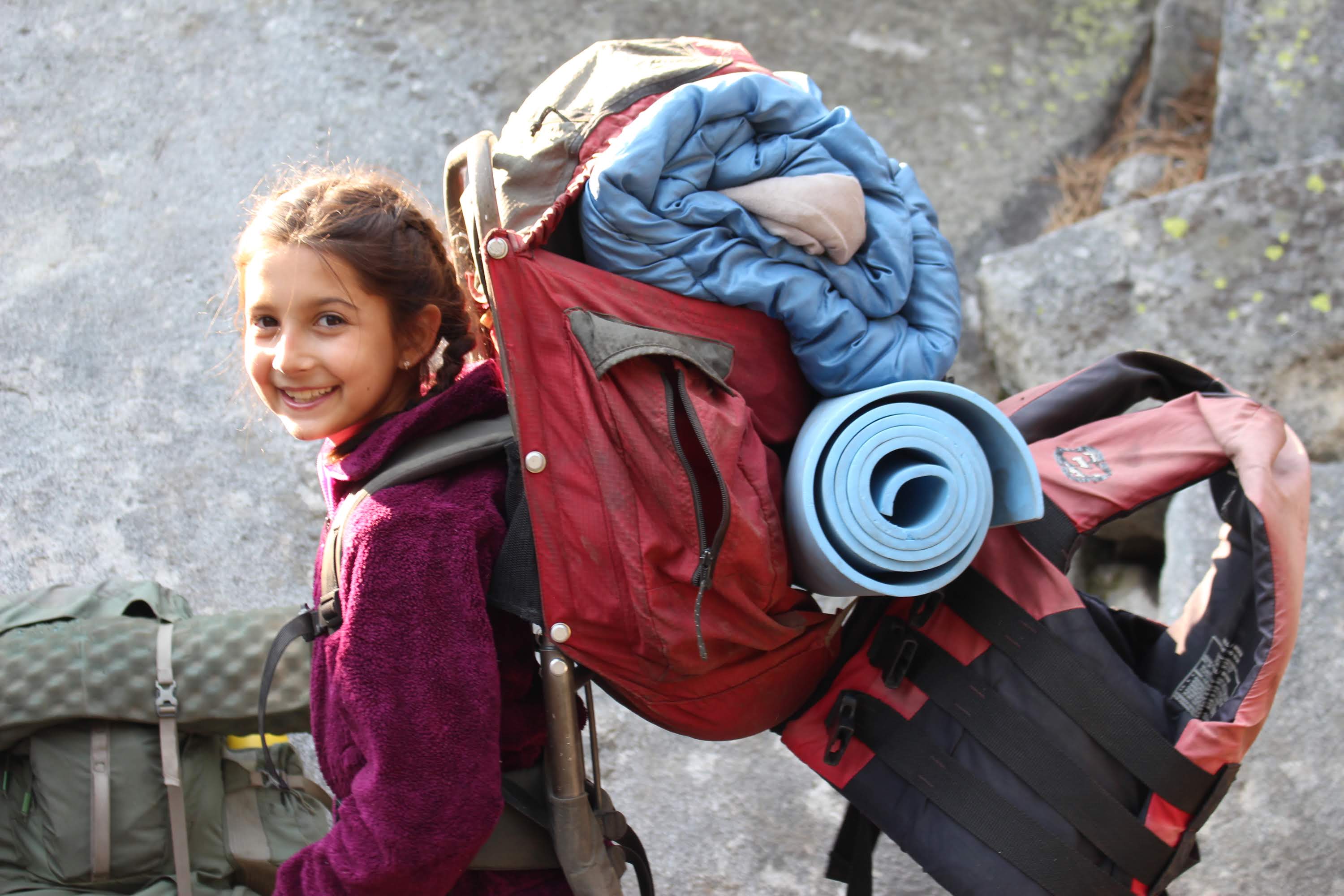
Not in Their Comfort Zone
Finally, another reason kids don’t want to try an activity is because, based on their perception of themselves or their past successes/failures, they think they won’t like it. It’s not in their normal repertoire of things they like and/or are good at.
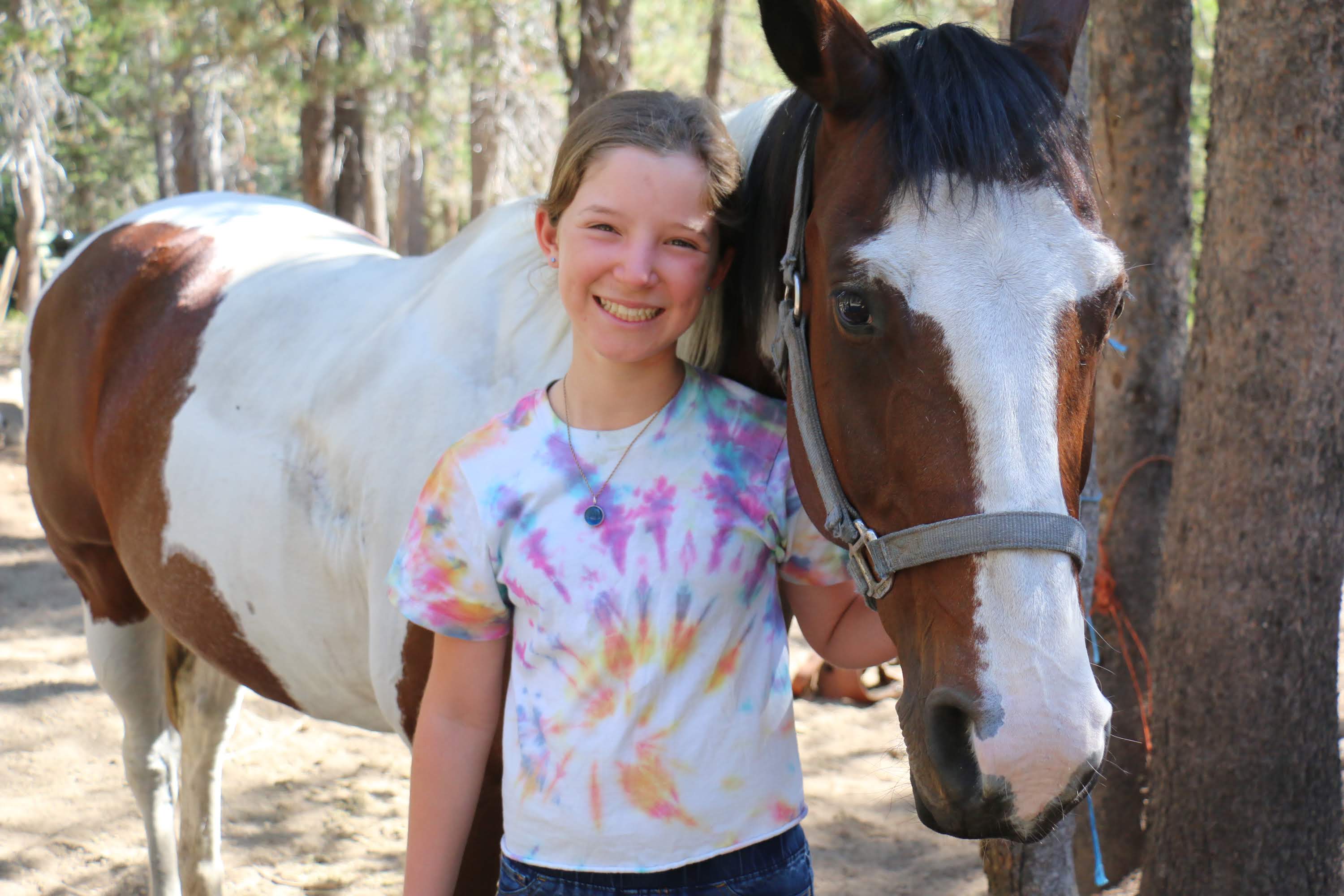
I’m sure there are other reasons for kids to not want to do an activity, but these are three that readily come to mind from what campers have told me over the years. Interestingly, the reasons kids don’t want to do an activity are the very reason trying the activity may be the best thing that happens at camp for that camper.
If a child doesn’t want to do an activity because of a previous negative activity, trying it at camp could lead to either a changed mind (and a new activity they like), or, at the very least, a not-as-negative experience to remember.
If a camper doesn’t want to do an activity because of fear, then trying the activity could be the most life-changing event that occurs for that camper during their camp stay. Overcoming fears and challenging oneself to attempt something that seems impossible can lead to great feelings of accomplishment and improved confidence. With the support and encouragement from cabin mates and counselors, campers feel on top of the world after successfully trying something they feared. For the camper with a fear of heights, climbing half-way up the ladder on the high ropes course will be celebrated as a huge accomplishment, and one that can make him/her proud. This is an example of something hard that leads to something good, a theme that Dr. Mogel stresses. The camp environment offers a supportive place for kids to learn how to overcome fears and accomplish things they didn’t think were possible.
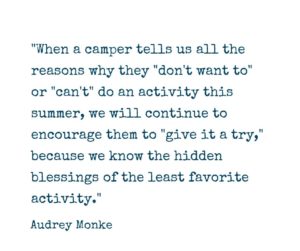 If a camper doesn’t want to do an activity because they don’t think they’ll like it based on their preferences or perception of themselves, trying something different offers an opportunity for expanded confidence. A camper who sees himself as non-athletic and more adept at target sports may shy away from the more physical activities, yet trying and accomplishing them could change his perception of himself in a positive way. A camper who likes shopping and clothes and sees herself as not an “outdoorsy” kind of person may dread going on a backpacking trip. Yet, the experience of cooking and sleeping outdoors could lead to an expanded view of herself and an appreciation for the many different facets of a personality. Sometimes, the activity a camper thought would be their least favorite becomes a favorite!
If a camper doesn’t want to do an activity because they don’t think they’ll like it based on their preferences or perception of themselves, trying something different offers an opportunity for expanded confidence. A camper who sees himself as non-athletic and more adept at target sports may shy away from the more physical activities, yet trying and accomplishing them could change his perception of himself in a positive way. A camper who likes shopping and clothes and sees herself as not an “outdoorsy” kind of person may dread going on a backpacking trip. Yet, the experience of cooking and sleeping outdoors could lead to an expanded view of herself and an appreciation for the many different facets of a personality. Sometimes, the activity a camper thought would be their least favorite becomes a favorite!
So, when a camper tells us all the reasons why they “don’t want to” or “can’t” do an activity this summer, we will continue to encourage them to “give it a try,” because we know the hidden blessings of the least favorite activity.
